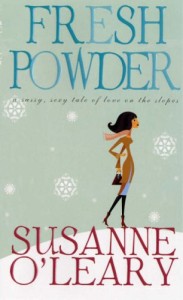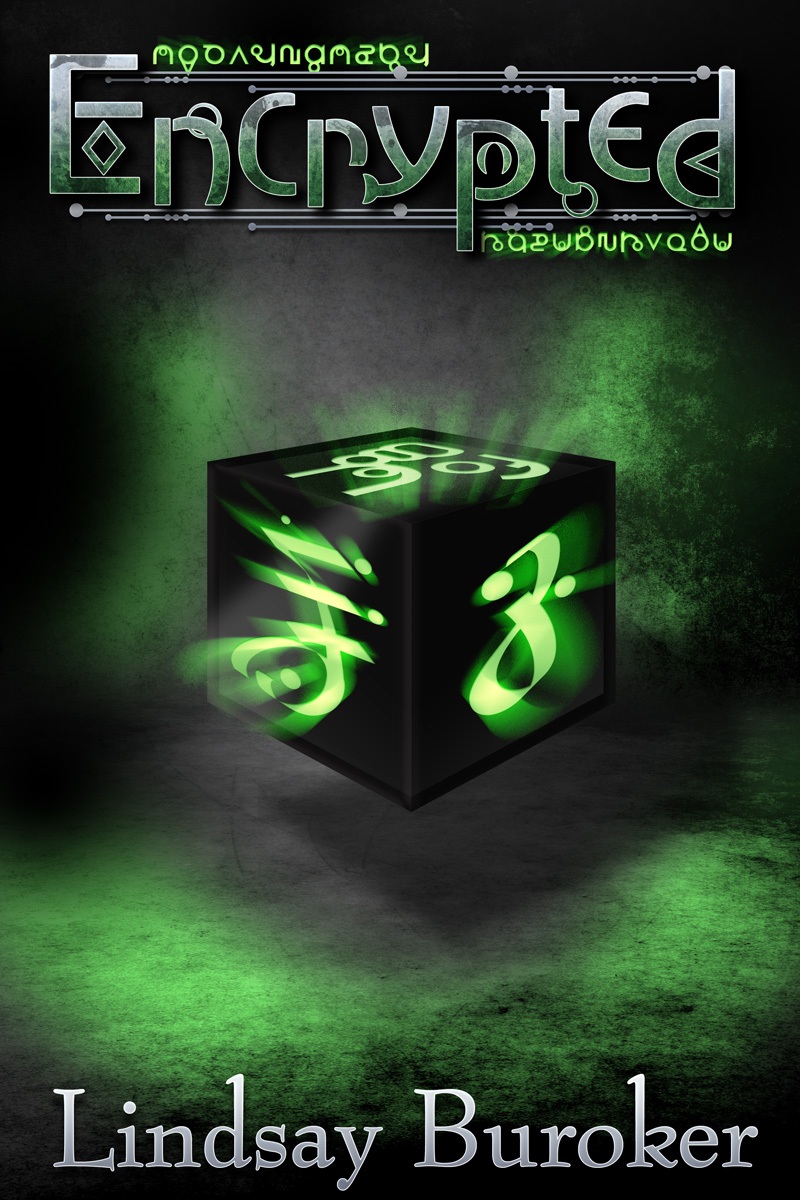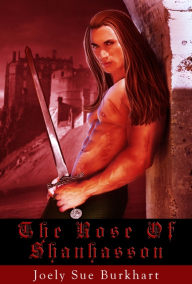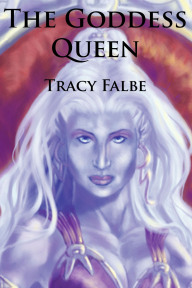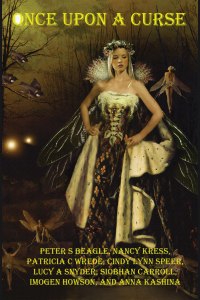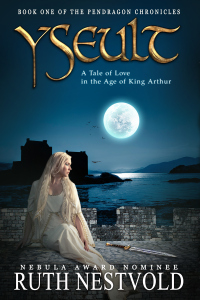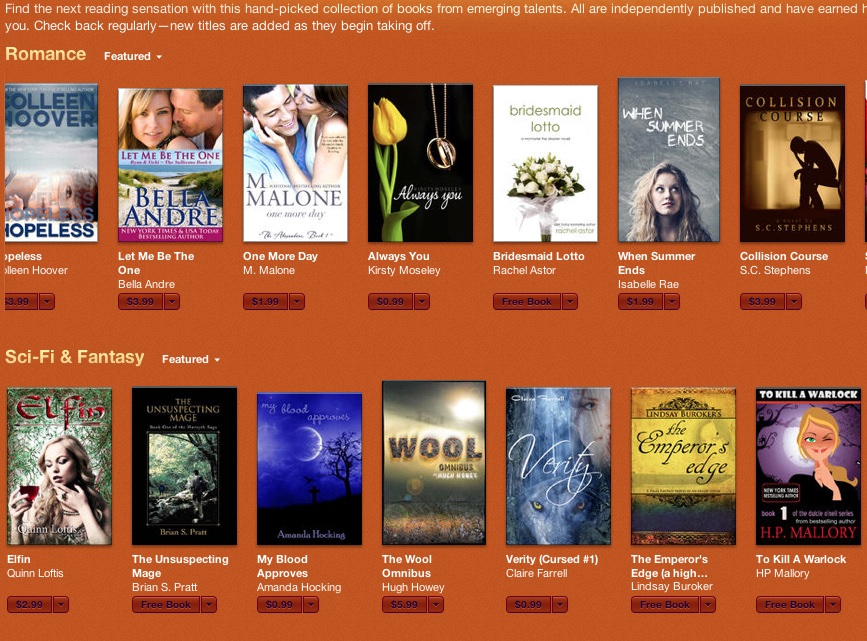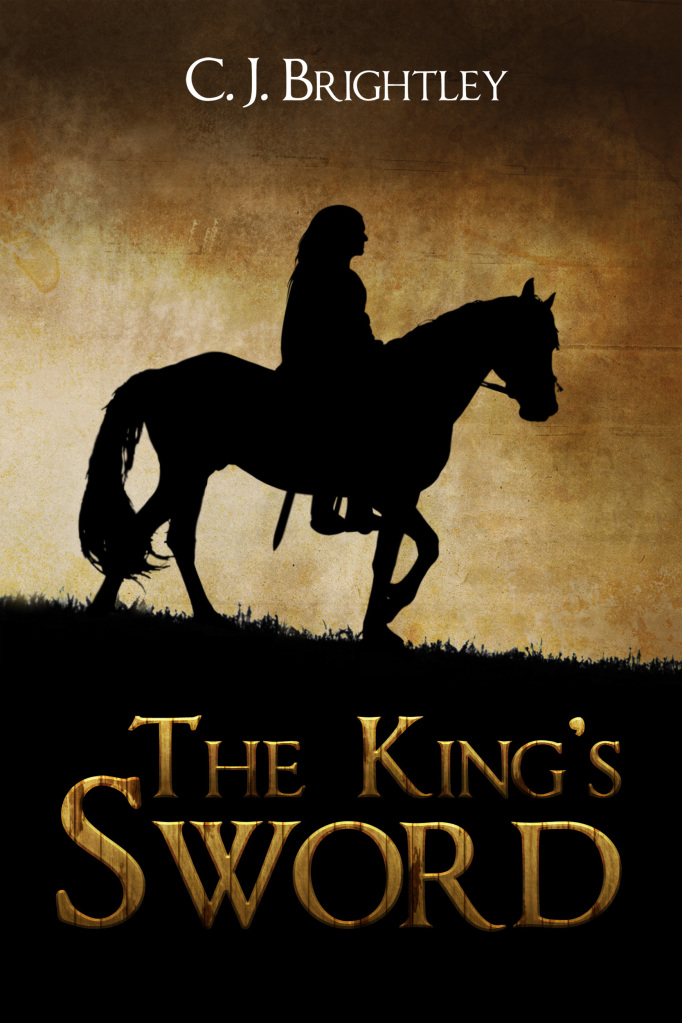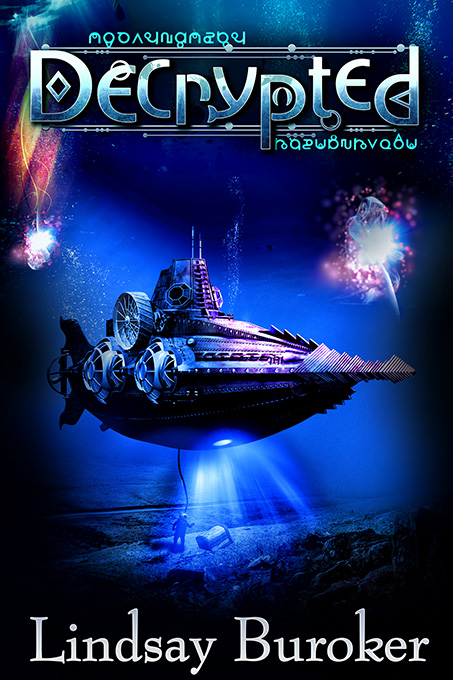 Some of you have already seen the cover for Decrypted on Facebook, but I thought a little teaser might be appreciated. The manuscript is off with my editor now, so apologies for any missing words or typos in here, but here’s the first chapter:
Some of you have already seen the cover for Decrypted on Facebook, but I thought a little teaser might be appreciated. The manuscript is off with my editor now, so apologies for any missing words or typos in here, but here’s the first chapter:
Chapter 1
Tikaya crossed out another opening line. A letter should not be so hard to write. True, the circumstances were not ideal: the ship’s wooden railing made a poor desk, the salty wind tugged at the paper, and something redolent of seagull poop adorned the side of her pencil. But it was the topic that made the message a challenge. And the fact that she didn’t know the names of the people to whom the letter would be mailed. Nor was she certain they existed.
She glowered at the page.
“Linguistics troubles?” a familiar baritone asked.
Tikaya turned and spotted Rias. A clean Rias, the first time he’d appeared so in more days than she could remember. She flung herself into his arms with enthusiasm that would have knocked over most of the men on her island; he caught her with ease. His six-and-a-half feet complimented her annoyingly tall six-foot frame nicely. But that height, along with those broad shoulders and the dense armoring of muscle beneath his shirt, reminded her how unmistakably Turgonian he was. For the eight- or nine-thousandth time, she worried that none of her ideas for inspiring her people—her family—to accept him would work. Even getting him past the port authorities could prove challenging.
The basalt cliffs rising from the eastern side of the island told her they had a few more minutes before the ship reached the harbor. She could worry then. For now…
Tikaya rose on her tiptoes, kissed Rias, and wriggled deeper into his embrace.
Catcalls and whistles floated down from the ratlines.
Someone yelled, “Ain’t pass’gers s’posed to have cabins for that?”
“Give ‘em a blanket, so’s we got a show to watch!”
Most of the sailors’ comments were easily ignored—especially considering how little of Rias she had seen during the three-week voyage—but the surly mutter of “traitor” from a passing man stole her ardor.
Tikaya broke off the kiss. “Sorry.”
The sailor had spoken in Kyattese, and she wasn’t sure if it was one of the words Rias knew, but he had to have guessed at the nature of the comment. He merely raised his eyebrows. “I hope that apology is for stabbing me in the neck with your pencil—”
She blushed and adjusted her hands.
“—and not for kissing me,” he finished. “Because if you’ve forgotten how much I enjoy the latter, I’ve been spending far too much time in that stokehold.”
His brown eyes twinkled, but she winced at the reminder that he had paid their fare with his labor. Granted, he was the fittest forty-three-year-old man she had met, but neither that nor the fact that women were not allowed in the stokehold assuaged her guilt. She had strolled the deck or sat in their cabin and studied pages full of symbols and runes, while he shoveled coal into the furnaces twelve hours a day. He had already given up a world to be with her, and she feared the sacrifices would only increase. What if he came to regret his decision?
“No,” Tikaya said when his brow furrowed at her silence. “I just wasn’t sure if it was appropriate for a woman to fling herself into the arms of a naval admiral on the deck of a ship.”
“It’s not my ship, and these days I’m rather retired…” Exiled. “So, unless it’s unseemly for a dignified philology professor to be seen tongue wrangling with a man in a public venue, it doesn’t bother me.”
“You have been down in the stokehold too long if you think I’m dignified.”
Rias offered his familiar half smile, caught her hand and started to lift it to his lips, but paused at the paper crinkled in her grip.
“I’m trying to write a letter.” Tikaya realized she had not answered his original question. “To Corporal Agarik’s family. They’ll probably hate me on principle, but I want them to know that he was a good man, that he saved my…” She swallowed. “What he did for us… I want them to know.”
“Ah.” Rias unbuttoned a shirt pocket and withdrew an envelope smudged with coal dust. He handed it to her. “I wrote to my parents to let them know I’m alive. I was going to ask you to mail it. If you tuck your message inside with a note for my father, he’ll get your letter to the family. Include Agarik’s name, rank, and that Bocrest was his commander.”
Tikaya eyed the envelope, daunted at the idea of asking for a favor from his—from Fleet Admiral Sashka Federias Starcrest’s—parents, especially when she was every bit the enemy to his people that he was to hers. “How about I give you the letter and you mail it with a note for your father?”
“I don’t know where the post office is on your island.” Rias smiled, but his eyes remained serious as he pressed the envelope into her hand. “And if something happens to me, I’ll be comforted, knowing you’ll be able to mail it.”
“Rias, my people are peaceful. We don’t have capital punishment, even for enemies of the nation. They’re not going to—”
A cleared throat nearby made her pause. It was the captain, a steely-haired man with a scar on his cheek almost as long as the pipe dangling from his chapped lips. He nodded to Rias. “You sure you want to get off here?”
The captain ignored Tikaya. The couple of times he had exchanged words with her, they had been in Kyattese, her language. He spoke in Turgonian now.
“Yes, sir,” Rias said.
The honorific surprised Tikaya. Though Rias had only a few gray hairs sprinkled about his temples, he had been as highly ranked in the Turgonian military as an officer could be, so the ‘sir’ sounded strange coming from him. But, then, he had told no one who he was, and, as far as she knew, no one amongst the multiracial crew had identified him. With his short black hair and clean-shaven face, he probably had not changed in the two years since his last command, but most of the world thought him dead, thanks to the story his emperor had circulated. This was a merchant vessel, too, and the captain hadn’t mentioned anything about being a part of the war.
The captain’s gaze flicked toward Tikaya. “Because of her?”
“Yes.” A wary note crept into Rias’s tone.
“Had a talk with my chief engineer this morning.” The captain removed his pipe and tamped it. “Seems you two have had a few dialogues.”
“We spoke,” Rias said.
Tikaya leaned against the railing, waiting for the captain to make his point.
“Seems you know the machinery,” the captain said.
“I’ve sailed on something similar.”
Tikaya almost laughed. She wondered what the captain and the engineer would think if they knew Rias had been designing a vessel of his own while he had been shoveling that coal. He had sketches in their cabin, and even if he’d been a military strategist rather than an engineer, she had little doubt he could build a craft from scratch.
“The chief isn’t usually blunt,” the captain said, “but he was this morning. He says I was an idiot for putting you in the stokehold.”
“The exercise suited me.” Rias lifted a hand. “Besides, the trip’s over now.”
“It needn’t be. Chief’s planning on retiring in the next year. He seems to think you’d be a better replacement than any of his junior officers.”
The offer sent a flutter of nerves through Tikaya’s belly. It shouldn’t appeal to Rias—even if they didn’t have plans to put his mathematical inclinations to work decoding ancient mysteries, it would be a pedestrian job after the challenges he had once encountered daily—but it reminded her that, imperial exile or not, he could find a place in the world just fine without her or the hospitality of the Kyatt Islands.
“I thank you for your consideration, sir,” Rias said, “but I’m not looking to stay on.”
The captain inhaled deeply, puffed out a ring of smoke, and sized up Tikaya. Her cheeks warmed as his scrutiny drifted from her spectacles above her freckled cheeks to the baggy military uniform that hid her curves—it was all she had for clothing until she got home.
“We visit Saltarr twice a year. The women there have teats like this—” the captain demonstrated lofty proportions with his hands, “—and they’ll do anything.” He jerked his pipe at Tikaya. “She doesn’t look like anything worth risking your life over.”
Rias’s jaw tightened. “She’s worth it.”
Tikaya pushed away from the railing and lifted her chin. “And she speaks Turgonian and understands what you’re saying.”
The captain shrugged and took another puff. “Just used to watching out for my crew. Men do stupid things for some skirt. It’s not safe for a Turgonian to step foot on Kyatt right now, not after the war. They might not shoot you,” he told Rias, “but they’ve got wizards and telepaths, and they’ll lock you up and brainwash you until you don’t know your own name.”
“That’s not true,” Tikaya said, though the fact that one of her people had inflicted a telepathic interrogation on her a few weeks earlier stole some of her certainty. That had been a relic raider, a woman who gave up the oath she swore before the Ministry of Science to pursue riches. “In my nation, it’s illegal for telepaths to pry without consent. As for brainwashing, I’m sure you Turgonians, with your manuals on torture methods, would know more about that than my people.”
For the first time, the captain stiffened, and his dark eyes narrowed. Tikaya tensed. Before she had been kidnapped by Turgonians, she would not have expected a man to strike her, but her captors had not appreciated hearing her opinions.
Rias chuckled, stealing the tension from the air. He gave her a fond smile. “I thought you only read the chapter on alchemical interrogation techniques.”
“I did,” she said. “The brainwashing comment was just a guess.”
“Chapter Seven,” Rias said.
The captain snorted, whether with humor or disgust Tikaya couldn’t tell, but at least he no longer looked like he meant to punch her. When a midshipman scurried up to report, he returned to his work.
Tikaya turned her back to the ship and resolved to push the captain’s comments from her mind. Worse insults would come, for both of them. She sighed and propped her forearms on the damp railing. Spray misted her cheeks.
Rias wrapped his arms around her from behind and rested his cheek against her temple. “You’re worth the world.”
The sentiment warmed her more than the sun glittering on the sea, but it didn’t alleviate her doubts. “I hope you still feel that way after you’ve met my family.”
He chuckled, his breath stirring goosebumps as it tickled her ear. Not for the first time, she lamented his indenture belowdecks. The stokers received few baths, and he had been unwilling to share a bunk with her when he was caked in coal dust and dried sweat. Now he was clean, but they were about to dock. Maybe the reception would go more smoothly than she anticipated and they could spend the evening somewhere pleasant.
“So, is Saltarr a port you’re familiar with?” Tikaya smirked as she turned her head to eye him. Though it had no archaeological significance and was not the type of place to attract her interest, she had heard of the vices plied there.
“After more than twenty years at sea,” Rias said, “I’ve been to most major ports in the world.”
A yes. Her smirk widened. A careful yes. “And did you meet any of the women there?”
“That would have been unwise.”
“Because you were married then?”
“That and because…” His eyes drifted up and to the side in his making-a-calculation expression. “One in three.”
She twitched an eyebrow. “And that is the solution to what equation?”
“Given what the sawbones told me, that’s about the odds of a man returning from shore leave in Saltarr without… ah, I’m not sure what the Kyattese term is, but we call it pizzle rot.”
“You Turgonians are a blunt people.”
“Indeed we are.”
Tikaya leaned back into his embrace, trying to relax and enjoy the last peaceful moment, but a landmark above a beach caught her eye. The lighthouse. Snakes tangled in her belly. They were entering the harbor.
* * *
Though the merchant ship had Turgonians in the crew, none of them walked down the gangplank with Tikaya and Rias. More police than she had ever seen strode along the piers and the quay. In their sandals, shorts, and yellow button-down hemp shirts, they were far less intimidating than Turgonian marines, but the fit men and women all carried cudgels or crossbows. Much had changed since Tikaya last visited the harbor.
Only two months had passed since her kidnapping, but she had secluded herself on her parents’ plantation during the previous year, mourning the fiancé she had thought dead. Now she wished she had paid more attention to the goings on in the capital.
Tikaya and Rias mingled with the crowd as people wound their way down the busy pier toward the streets of Yikyo, but their height made them stick out. The departing passengers and crew represented a number of nationalities, but Rias’s size, bronze skin, and black hair left little doubt to his origins. Merchants at vendor carts selling everything from chilled coconut milk to sarongs and sandals to dictionaries for foreigners eyed Rias as he passed. Despite her dubious outfit, no one glanced twice at Tikaya.
The first policeman they passed frowned deeply. His eyes grew distant, the expression of a practitioner calling upon his science—or a telepath communicating with someone.
“Trouble?” Rias murmured.
“Likely.”
“A lot or a little?”
Rias carried a rucksack but no major weaponry—Tikaya had convinced him to trade their rifle and longbow for coin, figuring it’d be best to walk onto the island unarmed—so that shouldn’t bother the police. But he would stand out here no matter what he wore. Also, he’d kept a short blade that hung in a belt sheath. She would have called it a dagger, finding it plenty long and sharp enough to slit throats, but he’d balked at the idea of classifying it as a weapon. The Frontier Toothpick, as he called it, was a mere utility knife by imperial standards.
“It depends on whether they recognize your face or they’re just reporting that there’s a militant-looking Turgonian strolling the docks.” Tikaya picked up her pace. She planned to report to the capitol building straight away—better to tell the president she wanted to bring a war criminal to visit than being caught trying to sneak him onto the island—and thought it’d be best to arrive with the news, rather than after it. Besides, the president had once said he owed her a favor for her pivotal role in ending the war. This was his chance to redeem it. He owed Rias a favor as well—when he’d still been fleet admiral, he’d stopped the Turgonian emperor’s deadly young henchman from assassinating the Kyattese leader—but Tikaya feared the president might never have received the warning note or otherwise learned of the incident.
“You didn’t recognize my face,” Rias said.
Yes, and he had been careful to withhold his identity during the first couple of weeks they’d been dodging assassins, decrypting deadly alien technology, and otherwise getting to know each other. She’d forgiven him for that subterfuge, but she did wonder how their relationship would have developed if she had known who he was from the beginning.
“I spent the war with my nose buried in your military’s encrypted communications. And I’ve spent the rest of my life with my nose buried in philology and archaeology books. My family members are lucky I recognize them.”
Rias bumped her shoulder and smiled. “Sounds like you need more field work. More adventures. Wait until you see what I’m planning for—”
“Halt!” a male voice cried.
The crowd parted in front of Rias and Tikaya. A row of policemen stood at the head of the pier, blocking the quay and access to Harbor Avenue and the city beyond it. The squad aimed crossbows and muskets at Rias.
Though she didn’t expect them to shoot, Tikaya moved to step in front of him with her arms spread.
A firm grip on her elbow halted her, and Rias stepped in front of her instead. She snorted. There was probably some Turgonian regulation against hiding behind a woman.
Tikaya leaned around him and told the policemen, “I’m a citizen. This is my guest. Is there a problem?”
She had never seen a whole squad of men and women drop their jaws in a synchronized stunned gape before. A seagull landed on a pier and squawked. The sound stirred some of the policemen into shutting their mouths.
“Your guest is Fleet Admiral Federias Starcrest?” the squad leader asked. “The slaughtering bloodthirsty tyrant who decimated our ships during the war? The nonpareil war criminal of the high seas? The heinous Turgonian emperor’s most dangerous lackey?”
Rias looked over his shoulder, his eyebrows raised in a question.
“They recognize you,” Tikaya said. “And, uhm, they don’t like you.”
“Yes, I gathered that. There were a lot of words in there you haven’t taught me yet though.”
Curse him, he sounded amused. But then, she’d seen him grin maniacally in the middle of battle, despite being surrounded by people attempting to kill him—no, because he’d been surrounded by people attempting to kill him.
“My people like vocabulary words,” Tikaya said, trying not to sound worried.
The police advanced with wariness despite Rias’s easy humor—they likely had no trouble understanding him, as most Kyattese learned Turgonian and Nurian in school, and those working around the docks would have had practice speaking with visiting foreigners. Four policemen kept their weapons trained on him while two edged forward, one clenching a baton, the other gripping handcuffs.
Rias let them shackle his hands behind his back. His eyebrow twitched when a policewoman took his knife, but he didn’t try to stop her.
A third man stepped toward Tikaya. “You said you’re a citizen, ma’am?”
His words elicited a faint sting. She had never sought glory or recognition, but it was disappointing that the common man had no idea about her and what she’d done to help her people during the war. Of course, the president had deliberately kept her identity secret, hoping the Turgonians wouldn’t figure out who the Kyattese code breaker was—and punish her. He’d underestimated their fact-finding abilities.
“Tikaya Komitopis,” she said.
Her ancestors had been among the original refugees who colonized the islands, so at least the policeman nodded in recognition at the family name.
“You’ll need to come with us for questioning, ma’am.”
“Me? Why?”
Rias lifted an eyebrow. “You were planning to leave me to be tortured alone?”
“I thought we might expedite the process if I could go straight to the president,” she said.
“Expedited torture. Oh, good.”
“No torture. I told you, we don’t do that anyway, but he owes me a favor.” Tikaya smiled, though she feared it did not reach her eyes. Rias would not face the sort of torture with which he was familiar, but she had no doubt he would be in for an ordeal—an image of sugarcanes being smashed in her family’s press came to mind—if she couldn’t get an appointment to see the president promptly.
One of the policewomen cleared her throat. At first, Tikaya thought she’d issue a warning that they should speak in Kyattese instead of Turgonian. But, “President Mokkos is on Akatoo this week,” was what she said, naming the smallest of the Kyattese Islands, and the most distant. “He and his team are assessing the ongoing damage in Ititio Harbor due to the season’s increased lava flows.”
Tikaya grimaced. “Do you know when he’ll be back?”
Before the woman could answer, the squad leader lifted a hand and said, “It’s irrelevant. It takes months to get an appointment to see him, and I doubt your family name will hasten that process. You’ll deal with the magistrate. Come.”
Tikaya wanted to state that her surname had nothing to do with anything, that it was her deeds that had earned her the right to see the president in a timely manner, but the police didn’t care to converse further. The squad swarmed around Rias, leading him away, and a pair of men stepped to either side of Tikaya, gesturing for her to follow. They did not otherwise restrain her, but that only made her feel guilty as she walked behind Rias, observing the handcuffs trapping his wrists behind his back.


